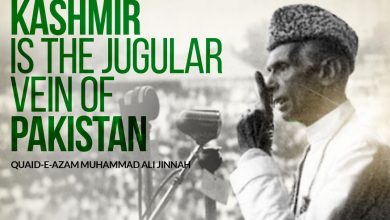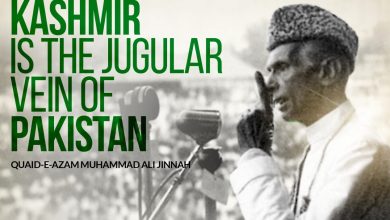The illusion of democracy: Analyzing the legitimacy of elections in IIOJK

Usama Imtiaz
 “Democracy under occupation is no democracy at all.” This statement, often cited by human rights activists all over the world, rings true and loud as Indian illegally occupied Jammu and Kashmir faces its 2024 Assembly elections. The deployment of over 900 paramilitary troops and 3,000 additional soldiers—including 500 para-commandos—has converted the region into a militarized zone rather than a space for free democratic expression. These elections are taking place in a territory already marked by internet shutdowns, communication blackouts, and a pervasive military presence that suppresses dissent, rendering any claim of democratic participation hollow.
“Democracy under occupation is no democracy at all.” This statement, often cited by human rights activists all over the world, rings true and loud as Indian illegally occupied Jammu and Kashmir faces its 2024 Assembly elections. The deployment of over 900 paramilitary troops and 3,000 additional soldiers—including 500 para-commandos—has converted the region into a militarized zone rather than a space for free democratic expression. These elections are taking place in a territory already marked by internet shutdowns, communication blackouts, and a pervasive military presence that suppresses dissent, rendering any claim of democratic participation hollow.
India’s control over Kashmir has long reflected strategies reminiscent of the colonial era, marked by the quashing of local political voices and the imposition of policies that echo apartheid-era South Africa. Elections in Kashmir have historically served less as a means of reflecting the people’s will and more as tools to legitimize Indian rule. The infamous 1987 elections, marred by widespread rigging and fraud, triggered mass protests and resistance, setting a precedent for future electoral processes conducted under conditions of duress and coercion. The 2024 elections, it appears, are no different.
The ongoing electoral process is deliberately structured to reinforce Indian dominance. The heavy military presence serves as a clear reminder of the oppressive atmosphere surrounding these elections.While official narratives justify these measures as essential for maintaining public order and preventing ‘terrorism’, but the reality is that such militarization aims to instill fear and enforce compliance. Moreover, India’s strategy of demographic engineering—such as granting domicile rights to non-Kashmiris—seeks to alter the region’s demographic composition in favour of pro-India constituencies, echoing apartheid South Africa’s racial engineering tactics.
Internet blackouts—imposed 630 times from January 2020 to July 2024, according to reports from the Legal Forum for Kashmir (LFK)—further exemplify the constraints under which Kashmir’s elections occur. These shutdowns are officially justified as measures to prevent misinformation, yet they effectively hinder independent reporting and isolate Kashmiris from the world.This heavy-handed censorship mirrors tactics used by authoritarian regimes, where internet restrictions suppress dissent and control narratives.
The international community’s response to India’s actions in Kashmir has been marked by troubling inconsistency. While the European Union has expressed concern over human rights violations in Kashmir, it continues to engage with India as a strategic partner. This double standard starkly contrasts with the vocal condemnation of similar practices elsewhere, such as the recent so-called elections in occupied areas of Ukraine. In both cases, the occupying power seeks to project a façade of democratic legitimacy over an inherently undemocratic reality, yet global reactions diverge, revealing a selective approach to international human rights norms.
The consequences of these elections reach far beyond the ballot box. For the people of Kashmir, these elections serve as a grim reminder of their continued disenfranchisement. The deployment of paramilitary forces, the suppression of genuine political leaders, and the use of coercive measures serve not to empower but to control. The international community’s muted response only compounds the sense of injustice felt by many Kashmiris.
IIOJK’s elections, far from being a genuine exercise in democracy, are instead a spectacle designed to obscure the reality of occupation. If the international community is serious about upholding democratic principles, it must hold India accountable and support the legitimate aspirations of the Kashmiri people for right to self-determination. The call for free and fair elections is not just political rhetoric; it is a demand for justice, dignity, and the fundamental right of the Kashmiri people to determine their own future.
The writer Usama Imtiaz is a research intern at LFK Islamabad focusing on geopolitical and international affairs.








